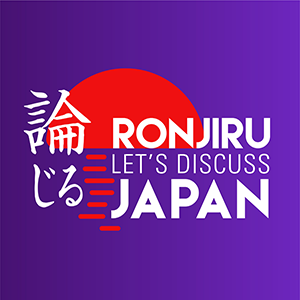
The world is flat!
Knowledge is not just a prerequisite for holding an opinion; it’s also a courtesy to the culture, person or situation that one is considering.
(Translated/adapted from an original Japanese-language article written by JayTee in August 1998, published in a local municipal monthly magazine in Japan.)
Several hundred years ago, many people believed that the planet was flat. It was widely accepted that if a ship travelled too far, it would fall off the surface of the Earth into the abyss, never to return. Similarly, in former times, seafarers noticed that the farther north a ship traveled, the colder it was and the more ice the ship encountered; so they assumed that the farther south they went, the oceans would end up increasingly warmer until, far south, the seas would be boiling. But thanks to Christopher Columbus and a host of sea-crossing captains, it became clear that the globe was actually a sphere, and there were no boiling seas in southern climes.
There was also a time when certain cultures believed that thunder was the sound of devils beating a drum above the clouds. And a time when the prevailing medical community believed that sickness was the result of ‘bad blood’ that could be cured if the blood was ‘letted’ at the point of malady. This belief had its day in medieval Europe, and the amount of blood to be letted depended upon the sickness.
Nowadays, we know that thunder is not caused by devils thumping on a drum, and modern medicine does not condone the dangerous practice of bloodletting.
But it’s not just ancient people who held their mistaken beliefs and pre-determined concepts about reality: the same is true today. The world is full of blanket preconceptions. For example, “the staple food of Europeans is bread”; or “that country’s religion is the same as mine, so they must be like me”; or “that’s an individualistic country, so its people are self-centered”…or any number of other insufficiently thought-out misconceptions that one hears.
Such assumptions based on preconceived notions are an impediment to the human family actually understanding one another. The first step to achieving proper internationalization is gaining proper knowledge.
Here’s an example. There are still people in the world who believe that modern Japanese daily society sees gorgeously-clad geisha and sword-wielding samurai among the crowds. But, alas, there is a danger in unthinkingly assuming that what used to be a reality long ago is still salient in today’s Japan. Because that belief is incorrect.
I think that before simply accepting any belief, one should first research the topic to gain some applicable knowledge. Knowledge is not just a prerequisite for holding an opinion; it’s also a courtesy to the culture, person or situation that one is considering.
I shall end with a story that I remember from long ago. It’s almost certainly apocryphal, and I can’t remember where I heard it (it’s not an original story from me), but it illustrates my point, so I shall use it.
A husband and wife have been married for several years, and sometimes the wife cooks her husband’s favorite, a big round of roast beef. One day he asks his wife: “when you cook me a lovely roast beef, why do you cut both ends off the chunk of roast before you cook it?”. She answers: “because that’s how my mother did it, and it makes the meat taste better for gravy.” So the man goes to his wife’s mother and asks the same question. His mother-in-law says: “because that’s how my mother did it, and it makes the meat taste better for gravy.” So the man goes to his wife’s grandmother, and asks her “when you cook a lovely roast beef, why do you cut both ends off the chunk of roast before you cook it?”
To which she responds: “So that it fits in the pan”.
〆
